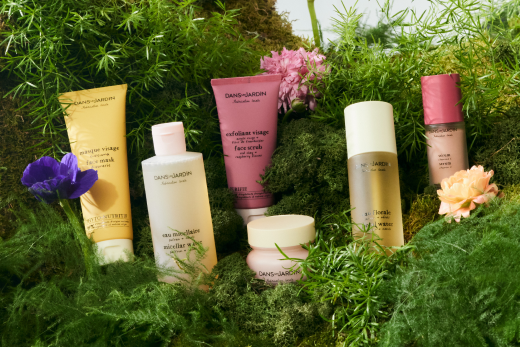Aromatherapy is a therapeutic practice that uses the aromatic essences of certain plants, citrus fruits, resins or woods for healing purposes. These aromatic essences are more commonly called "essential oils". One might think that this practice is done only by diffusing odors for pleasure purposes as in the case of candles, but the term "therapy" indicates that it is a practice that helps with health.
This article therefore aims to teach you a little more about what an essential oil is, what the best practices are for using it and what benefits it provides.
What is an essential oil?
Essential oil is a volatile essence obtained by steam distillation of water, aromatic plants and other natural elements. Although the term "oils" is used, these substances do not contain any fatty substances. In fact, an essential oil can be anything that is extracted in liquid form. The extraction of these oils is most commonly done using:
- Flowers: such as lavender, rosemary, rose
- Leaves: such as eucalyptus
- Seeds or fruits: such as anise, fennel and citrus fruits
- Roots: vetiver and angelica
- Wood: such as cedar, sandalwood
- Rhizomes: such as ginger, turmeric
- Bark: such as cinnamon
- Resins: such as frankincense, myrrh
About 4,000 plant species can be used to make aromatic essences, but only a few hundred exist in sufficient quantity to be extracted.
The most environmentally friendly extraction methods are steam distillation (invented in the 11th century) and cold mechanical pressing, which is used in particular for citrus fruits. Extracting these oils can be very expensive, as some oils can require around 35kg of raw materials to produce 1 litre.
The conservation of essential oils obtained by these processes is legally approved for 5 years, but it is possible to conserve them for up to 10 years if they are kept away from heat (between 5 ºC and 40 ºC) and light with a tight closure in a bottle. Citrus essences, however, can only be conserved for 3 years.
How to use essential oils?
Essential oils can be used either internally, externally or aerially (by diffusion). It is important to know that some oils can only be used by certain means and that their use must be done with caution.
Essential oils internally
Some oils are sometimes irritating to the respiratory tract, especially to the mucous membranes. It is then preferable to ingest them by mixing them with a little organic vegetable oil, honey or bread crumbs, because they do not dissolve in water. It is also possible to obtain ready-made capsules in pharmacies.
Essential oils for external use
It is also possible to diffuse the oil through the pores of the skin. Simply mix it with a vegetable massage oil or with a wax, ointment, cream or body milk.
Essential oils in diffusion
Probably the most popular way to absorb an essential oil is through the respiratory tract. Examples include eucalyptus or orange saunas in spas or incense. Absorption through the respiratory tract is more often used when you want to benefit from the psycho-emotional benefits since the oil reaches the brain by being absorbed through the olfactory bulb.
Some precautions for use
The use of essential oils must always be done with caution since they are very concentrated in active chemical elements.
Indeed, when you want to use it for external purposes, it is important to always dilute the aromatic essences in vegetable oil before applying it. Some oils can be dermocaustic, which means that they can be irritating to the skin, especially "phenols": clove, oregano, mountain savory and certain "aldehydes" such as lemongrass and cinnamon. Some people may have allergic reactions caused more often by zest essences such as lemon, orange, mandarin, grapefruit and even angelica and khella.
When it comes to internal use, it is important to know that some oils such as those from ketones are poisonous and should never be taken orally.
Essential oils not to diffuse
- Phenols: Ceylon cinnamon, clove, thyme with thymol, oregano, savory
- Ketones: common sage, white mugwort, common hyssop
The diffusion of these essences should be avoided since they are irritating to the respiratory mucous membranes.
Repeated use of essential oils
Some oils can be hepatotoxic (phenols) or neurotoxic (cenoles) such as peppermint and mentholated eucalyptus. Also, camphor rosemary essential oil can trigger epileptic seizures in certain people at risk.
If in doubt, it is important to follow the recommendations for use and consult an aromatherapy specialist or a specialized pharmacist.
The benefits of aromatherapy
Science has identified more than 80 properties of common essential oils. Indeed, the benefits of these essences are manifested in several ways, including effects on pathogenic microorganisms (bactericidal, antiviral, antifungal, etc.) and effects on several physiological functions.
Improved sleep and reduced insomnia
Yes, it is true that using essential oils can have an effect on mood and reduce stress. Lavender essential oil acts in particular as a mild sedative that promotes deep sleep. Its use by air during sleep would help to have a slow and deep sleep and would help to increase the period.
Also, applying lavender essential oil by massage before bedtime would have beneficial effects on reducing insomnia.
Reduce hypertension
When a person accumulates stress and anxiety, they may experience an increase in their blood pressure and blood sugar. This can lead to health complications such as heart and brain damage.
It is possible to reduce blood pressure with the help of the following oils: lavender, marjoram, ylang-ylang, bitter orange and neroli, with sweet almond oil and concentrated jojoba. In order to benefit from the benefits of these oils, simply apply it externally or by massage.
Do not hesitate to find out more about the products that would be best suited to your needs!
- This article was written by students at the University of Quebec in Montreal (UQUAM) and we thank them greatly for this very nice article!






madeleine rioux -
bien heureuse d,en apprendre sur les huiles essentiels merci